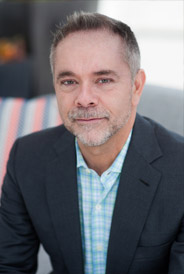Surgical sperm retrieval (SSR) is used to retrieve sperm in men who have little to no sperm in their semen or are unable to produce an ejaculate. There are several types of techniques, all of which require a surgical procedure in the genital tract. These procedures are considered minor and are performed with a local anesthetic. Recovery from SSR can take 24 to 48 hours.
SSR is ideal for 10% of infertile men who have little to no sperm in their semen. These men could have one of these conditions:
- blockage in the genital tract, specifically the vas deferens or epididymis
- congenital absence of the vas deferens (CAVD)
- · difficulty in sperm production
SSR Techniques
SSR techniques can be conducted in one of three locations in the male reproductive tract. These locations include the:
- vas deferens (vasal sperm aspiration)
- epididymis (epididymal sperm aspiration)
- testicles (testicular sperm aspiration)
Which technique to use is dependent on the sperm source availability and patient preference.
Vasal Sperm Aspiration
Of the three retrieval locations, vasal sperm aspiration is the only type of SSR that retrieves mature sperm, due to the fact that sperm has already passed through the epididymis. Mature sperm is mobile and able to find (capacitation) and penetrate (fertilization) an egg. Because of sperm maturity, pregnancy can be achieved using IUI, however, vasal sperm is more commonly used with IVF and ICSI.
Men who have blockages in the reproductive tract outside of the scrotum (resulting from injury, infection or vasectomy) are typical candidates for this SSR technique. Men who are unable to ejaculate (due to diabetes or a spinal cord injury) may also choose this method for sperm retrieval. In both cases, sperm production should be normal. Men with low sperm production would likely opt for testicular sperm retrieval which will be discussed later.
Two types of vasal sperm aspirations include microscopic vasal sperm aspiration (MVSA) and percutaneous vasal sperm aspiration (PVSA). MVSA requires a small incision to be made in the vas deferens through the scrotum. Microscopic sutures are required to close up the incision after SSR. PVSA involves aspiration of the sperm through a puncture in the skin.
Epididymal Sperm Aspiration
Like vasal sperm aspiration, epididymal sperm aspiration is ideally performed on men with normal sperm production. Unlike vasal sperm aspiration, however, this SSR technique is performed when there the vas deferens is absent or scarred. Epididymal sperm aspiration can also be performed in cases of anejaculation, which may be the result of diabetes or spinal cord injury.
Microscopic epididymal sperm aspiration (MESA) requires the use of a microscope and a small incision to assist in finding the sperm. Percutaneous epididymal sperm aspiration (PESA) is performed through needle aspiration through the skin and typically doesn't yield the same quality or quantity of sperm as MESA. While PESA is less invasive, it may not be as successful as MESA. There may be a need to repeat the process should more sperm be needed.
Testicular Sperm Retrieval
When there is blockage (obstructive azoospermia) in the epididymis or elsewhere in the genital tract, testicular sperm retrieval may be an option. This procedure can be used in men with obstructed azoospermia who have normal sperm production and men with nonobstructive azoospermia but have very low sperm production. Testicular sperm are the least mature and fertilizable than vasal or epididymal sperm. For this reason, testicular sperm is used in conjunction with IVF-ICSI.
In the case of obstructive azoospermia, sperm can be retrieved from the testes by needle aspiration or by open surgical biopsy. Testicular sperm aspiration (TESA) which is done by needle aspiration draws sperm from various locations around the testis.
Sperm extraction through open surgical biopsies is called testicular sperm extration (TESE). Instead of a needle, a biopsy “gun” is used. A small incision is made in the scrotal skin and the testis tissue is biopsied directly with the gun. This biopsy retrieval method can take 24 – 48 hours from which to recover.
For men with nonobstructive azoospermia, multi-biopsy TESE and microdissction TESE are the more invasive SSR techniques. Multiple biopsies are required to find the best retrieval location in the testis. Multiple incisions (as in the case of multi-biopsy TESE) or a single large incision (as in the case of microdissection TESE) have the highest risk of permanent injury of all the SSR techniques.
Assisted Reproduction Techniques (ART)
While there are several assisted reproduction techniques (ART), three specific assisted reproduction techniques (ART) used in partnership with SSR include IUI, ICSI, and IVF.
Interuterine insemination (IUI), also known as artificial insemination (AI) involves the direct injection of retrieved sperm into the uterus. The sperm used in IUI will still need to travel to the egg for fertilization so it is best used with mature sperm—sperm that is mobile and able to find and penetrate an egg. Vasal sperm is best suited for this assisted reproduction technique.
Intracytomplasmic sperm injection (ICSI) is when the sperm is injected into the egg directly. Because the sperm is injected directly into the egg, epididymal and testicular sperm, which are less mature than vasal sperm, can be used.
In-vitro fertilization (IVF) involves the retrieval of both egg and sperm and fertilization is done outside the uterus. This assisted reproduction technique can be done in conjunction with ICSI for the highest chance of pregnancy success













